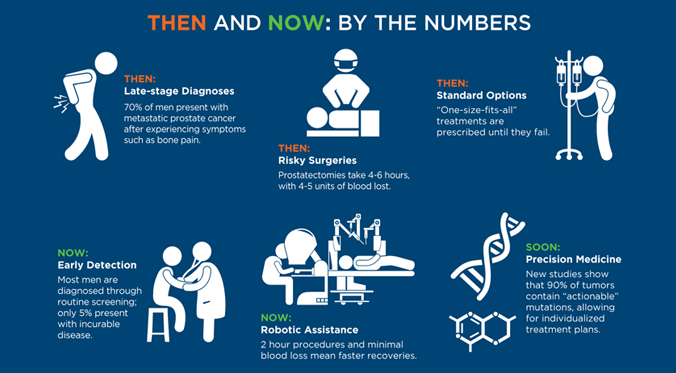Prostate Cancer Operation Could Save Sex Lives!
January 4, 2019

Prostate cancer is the most common cancer affecting men in the UK. It’s a huge problem that men face, and so early treatment is essential. The sooner you catch it, the better your chances. Many of the methods used to treat cancer had side effects, and they can be difficult to live with.
One of the most common side effects from prostate surgery is the loss of a sex drive. Tons of men report that their desire for sex goes down the drain, or that they simply don’t think about it any more. Some even find it difficult to rise to the occasion.
A new technique is currently being trialled which could save sex lives for those going through treatment. Curious to know what it is? Keep reading.
The facts about prostate cancer
Prostate cancer is the most common cancer affecting men in the UK. Each year there are almost 50,000 cases diagnosed, with 12,000 dying as a result each year. You don’t need me to tell you that’s a lot of people dying. The sooner it is diagnosed, the better your chances of survival are.
Treatment of the cancer will depend on the progression of it. Often one of the steps taken is that the prostate gland is removed. However, removing the prostate gland can lead to a drop in sexual desire. Many of those who have been through the surgery state that their sexual potency has reduced.
Removing and treating the cancer is the priority, but modern medicine means that the chances of survival improve each and every day. Medical advances have come a long way. If there is a way to treat the cancer and also save sex lives, things would be even better.

What is NeuroSAFE?
The fact that people experience a drop in their desire for sex is enough to put some people off of the surgery. Consultant urological surgeon Greg Shaw stated that he had two young patients decline surgery, and that their cancer became untreatable as a result.
So along came NeuroSAFE. NeuroSAFE is the technique currently being trialled by London surgeons. The procedure aims to reduce the risks of men losing their sex drive. Hopefully it will mean that the number of people being treated will rise.
NeuroSAFE began in Germany, and is conducted using a surgical robot. It removes the prostate gland while minimising the chances of having the nerves around the gland removed. This is said to help preserve a man’s ability to desire and have sex. The technique is being trialled at University College London Hospitals in Marylebone.

How does it work?
The prostate gland is about the size of a walnut, but the outer covering contains the potency nerves. These can alter a man’s desire for sex. Typically, the surgery involves removing the gland entirely, taking the nerves with it. However, this new technique hopes to save the nerves and therefore save sex lives.
Surgeons remove the prostate in this new procedure, and then analyse it underneath a microscope. The pathologist does all of this while the patient remains under anaesthetic. If they detect no cancer in the adjoining area, the all clear is given and the surgery is complete. The nerves are spared. If there is cancer found, the nerves are removed.
This could be huge and encourage more men to undergo surgery. The loss of a sex drive is a big deterrent, even with the risk of the prostate cancer spreading and coming untreatable. When speaking about the surgery, Shaw had the following to say:
“The tendency is to not spare the nerves if there is thought to be a risk of leaving cancer behind. There is a strong rationale to do everything we can to spare the nerves when safe to do so, particularly where patients are so young and have got a lot to lose. We know that nerve-sparing works. The more nerve tissue is left behind, the greater a man’s chances of being potent after surgery. If we can’t leave the nerves at all, they’re extremely unlikely to be potent, even with Viagra.”
Greg Shaw speaking with The Evening Standard
A costly surgery
One of the biggest drawbacks of the procedure is that it costs £1,000 to have theatre technicians and a pathologist on standby. This is why the trial is running. They hope to determine whether it is value for money. The next stage of the trial will see it expanded so they can see how effective it would be.
Medicine has come such a long way, and the fact that they can do something like this is incredible. It will really change the lives of those with prostate cancer and make getting the surgery to treat it more appealing. Hopefully it will prove to be cost effective, but only time will tell.
- EROTIC STORY: Bi-Curious – Surrendering to My Gay Fantasies - July 2, 2025
- Women’s Day 2025: Celebrating Empowerment in the Industry - March 6, 2025
- Celebrating International Sex Workers’ Rights Day 2025 - March 3, 2025

